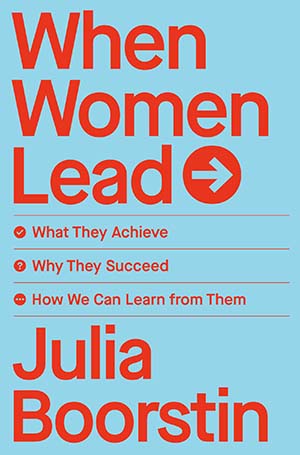
Kerry Painter (from left), T. Taubie Motlhabane, Cynthia Serrano, and Kathleen Warden are four of more than a dozen leaders at convention centers interviewed for our series on female leadership.
I hope you’re reading Senior Editor Jen Dienst’s ongoing series of interviews with women leaders at convention centers, a part of the industry which has been led mostly by men. As she checks in with more than a dozen women in convention center leadership positions around the world (with more interviews to come), Jen is uncovering some common threads linking women leaders.
One is a propensity to be driven by a sense of social purpose. “I thrive on making progress,” Kathleen Warden, director of conference sales at the Scottish Event Campus in Glasgow, Scotland, told Jen. “The conventions industry is deeply rooted, fundamentally, in delivering social, economic, and environmental progress.” In 2021, Warden played a pivotal role in pushing for the events-industry Net Zero Carbon Events pledge which was unveiled at COP26, the United Nations climate change conference held in Glasgow. Social transformation is also a driver at the Cape Town International Convention Centre (CTICC), in Cape Town, South Africa. CTICC CEO T. Taubie Motlhabane has used the last two years as an opportunity to repurpose the facility as a “the solutions and innovation center for our city, country, and continent,” addressing challenges in technology, agriculture, green energy, finance, health, and tourism, she said.
Female convention center leaders also report relying on a collaborative leadership style that encourages participation and insights from employees at all levels. “We need to create opportunities for growth and learning,” said Cynthia Serrano, general manager of the Fort Worth Convention Center in Fort Worth, Texas. “Invite a diverse group of people to the table. Open up team discussions to gain a broader perspective and be a part of the creative solution. There are knowledge jewels and nuggets in collaborative settings.”

Julia Boorstin’s October book release explores what happens when women lead.
Those traits and others that women bring to leadership have turned out to be exactly what’s needed in times of crisis like the ones we’re facing now, according to journalist Julia Boorstin’s upcoming book, When Women Lead: What They Achieve, Why They Succeed, and How We Can Learn From Them.
In the book, which will be released in October by Avid Reader Press, Boorstin cites the success of female-led nations in navigating the first year of the pandemic — the single most predictive indicator about lowered rates of death from COVID-19 from March 2020 to March 2021 was the gender of a nation’s leader. A separate study of 800 male and female business leaders, conducted between March and June 2020 by the leadership development agency Zenger Folkman, found that women were rated as more effective in 13 of 19 different business capacities. One contributing factor, Boorstin writes, is that there are gendered differences in the amount of risk that female leaders are comfortable with in a crisis, compared with male leaders. When subjected to stress, men are more likely to gamble more.
Society’s view of crisis leadership has been colored by theories which attribute critical historical consequences to the decisions of a small number of unique leaders, such as Abraham Lincoln, Winston Churchill, or Franklin D. Roosevelt. But what the studies of women leadership show, Boorstin asserts, is that when crises are the result of highly distributed social forces — like the pandemic — women tend to be the more effective leaders.
The good news for the events industry is that supporting other women at the top or on the path to leadership is yet another thing that female convention center leaders have in common. Kerry Painter, the director and general manager of the Raleigh Convention + Performing Arts Complex in Raleigh, North Carolina, was a founder of the 100+ Women of IAVM scholarship program, in partnership with the International Association of Venue Managers, which offers support to women to attend industry educational conferences. “I have a circle of women in the industry who support each other greatly in times of growth, stress, or challenges,” Painter said. “Together, we have been very intentional in choosing future ‘rockstars’ and consistently connecting and mentoring them so they too can grow into the higher levels of our venues.”
Barbara Palmer is deputy editor at Convene.
